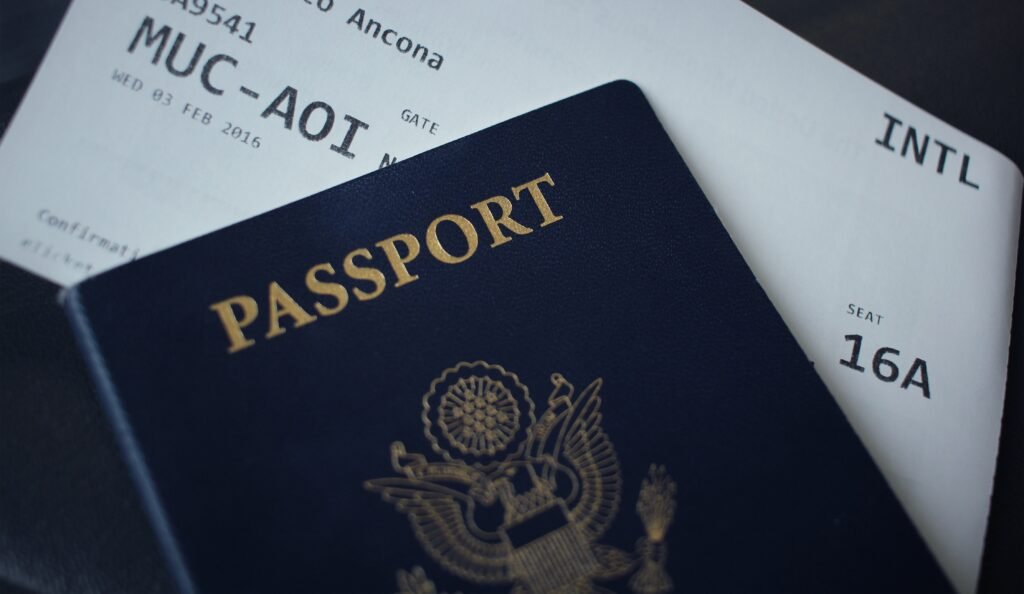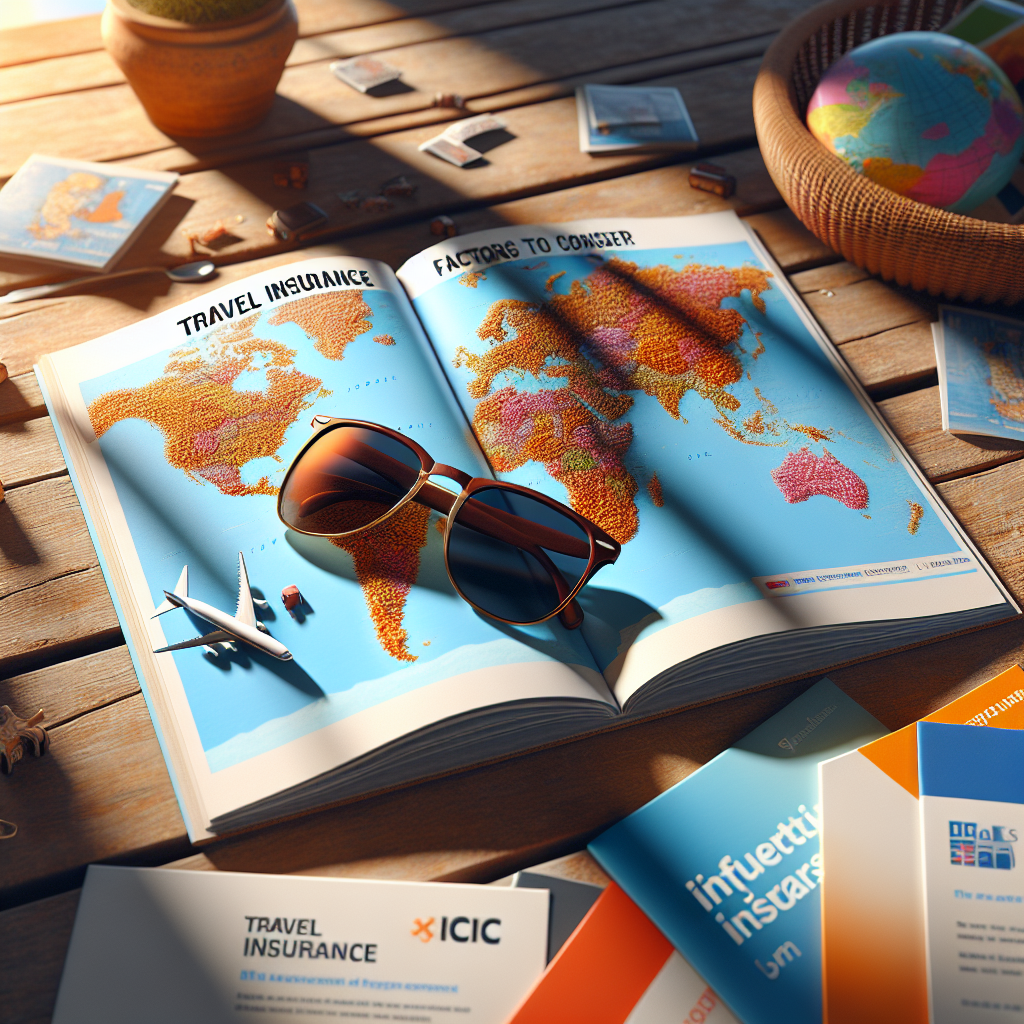When planning your next trip, it’s important to have travel insurance to protect yourself in case of any unforeseen circumstances. However, with so many travel insurance providers out there, it can be overwhelming to choose the right one for your needs. In this article, we will explore the key factors you should consider when comparing travel insurance providers, ensuring that you make an informed decision and have peace of mind during your travels.
Understanding the Need for Travel Insurance
Traveling can be an exciting and enriching experience, offering you the opportunity to explore new cultures, try new foods, and create unforgettable memories. However, it is important to recognize that unexpected events can occur while traveling, such as a medical emergency, trip cancellation, or loss of personal belongings. This is where travel insurance comes in handy – it provides you with financial protection against these unforeseen circumstances, giving you peace of mind during your travels.
Types of Travel Insurance
When it comes to travel insurance, there are various types of coverage available, each designed to cater to different needs. Some common types of travel insurance include:
1. Medical coverage
Medical coverage is essential as it provides financial protection in case you experience a medical emergency while traveling. This coverage typically includes expenses related to hospitalization, doctor visits, prescription medications, and emergency medical evacuation.
2. Trip cancellation or interruption coverage
Trip cancellation or interruption coverage protects you financially if you need to cancel or cut short your trip due to unexpected reasons such as illness, injury, or a death in the family. This coverage can help you recover the non-refundable costs of your trip, such as flights, accommodations, and tour packages.
3. Luggage and personal items coverage
Luggage and personal items coverage reimburses you for the loss, theft, or damage of your belongings during your trip. This coverage not only extends to your luggage but also includes valuable personal items such as cameras, laptops, and jewelry.
4. Evacuation coverage
Evacuation coverage provides financial assistance in the event that you need emergency medical evacuation or transportation to the nearest adequate medical facility. This coverage is especially crucial if you plan to travel to remote or unfamiliar destinations where medical facilities may be limited.

The Role of Travel Insurance
The primary role of travel insurance is to protect you financially from unexpected events that may occur during your trip. While no one plans for their trip to be disrupted or for emergencies to arise, having travel insurance ensures that you are financially prepared for the unexpected. Whether it is a medical emergency, trip cancellation, or loss of personal belongings, travel insurance provides you with the necessary assistance and coverage to navigate these situations with ease.
Why Travel Insurance is Necessary
Travel insurance is necessary for several reasons. Firstly, it provides you with peace of mind, knowing that you are financially protected against unforeseen events. Secondly, it helps you avoid significant financial losses in case of trip cancellation, interruption, or medical emergencies. Lastly, travel insurance also offers additional benefits such as 24/7 assistance and rental car insurance, providing you with a comprehensive package of support throughout your journey.

Factors to Consider When Comparing Providers
When comparing travel insurance providers, there are several important factors to consider in order to ensure that you select the best option for your needs. These factors include:
1. Cost of the policy
One of the first factors to consider is the cost of the policy. While it is important to find a policy that fits within your budget, it is equally essential to ensure that the coverage provided aligns with your travel requirements.
2. Coverage offered
The coverage offered by different travel insurance providers can vary significantly. It is crucial to review the policy details and understand what is included and excluded in the coverage. Look for a policy that provides comprehensive coverage for the specific aspects you require, such as medical expenses, trip cancellation, and luggage protection.
3. Exclusions in the policy
Understanding the exclusions in the policy is equally important. While travel insurance provides coverage for various situations, there are typically exclusions that may limit or exclude coverage for certain events or activities. Make sure to carefully review the exclusions and ensure they do not pose a significant risk to your travel plans.
4. Provider’s reputation and reliability
The reputation and reliability of the travel insurance provider should also be taken into consideration. Research the provider’s background, read customer reviews, and gather information about their track record in terms of customer service and claims handling. A reputable and reliable provider will have a positive reputation and a history of supporting their customers in times of need.
5. Ease of claim process
Lastly, consider the ease of the claim process. In the unfortunate event that you need to file a claim, it is essential to choose a travel insurance provider that offers a streamlined and straightforward claim process. Look for providers that have a reputation for expediting claims and providing fair and prompt settlements.
Browsing Different Types of Travel Insurance Coverage
Now that you have a better understanding of the factors to consider when comparing travel insurance providers, let’s delve into the different types of coverage available in more detail. By exploring these different types of travel insurance coverage, you can determine which ones are most relevant to your travel needs.
Medical coverage
Medical coverage is a crucial aspect of travel insurance, as it provides financial protection for any unexpected medical emergencies that may occur while you are traveling. This coverage typically includes expenses such as hospitalization, doctor visits, prescription medications, and emergency medical evacuation.
Trip cancellation or interruption coverage
Trip cancellation or interruption coverage is designed to protect you financially if you need to cancel or cut short your trip due to unforeseen circumstances. This could include unexpected illnesses, injuries, or a death in the family. With this coverage, you can recover the non-refundable costs of your trip, such as flights, accommodations, and tour packages.
Luggage and personal items coverage
Luggage and personal items coverage provides reimbursement for loss, theft, or damage to your belongings during your trip. This coverage extends to your luggage as well as valuable personal items such as cameras, laptops, and jewelry. Having this coverage ensures that you are protected if your belongings are lost or stolen during your travels.
Evacuation coverage
Evacuation coverage is especially important if you plan to travel to remote or unfamiliar destinations. This coverage provides financial assistance in the event that you need emergency medical evacuation or transportation to the nearest adequate medical facility. Having evacuation coverage ensures that you have the necessary support and resources in case of a medical emergency during your trip.

Deciphering the Costs involved
When it comes to travel insurance, understanding the costs involved is essential to make an informed decision. Let’s take a closer look at the different components that contribute to the overall costs of a travel insurance policy.
Understanding Premiums
The premium is the amount you pay for your travel insurance policy. The cost of the premium is typically influenced by various factors, including your age, destination, length of travel, and the level of coverage you have chosen. It is important to note that cheaper premiums may offer less comprehensive coverage, so it is crucial to strike a balance between cost and coverage.
Learning about Deductibles
A deductible is the amount you must pay out of pocket before your travel insurance coverage kicks in. Policies with higher deductibles often have lower premiums, while policies with lower deductibles generally have higher premiums. It is important to consider your potential out-of-pocket expenses when selecting a deductible that aligns with your budget.
Exploring Sublimits
Sublimits refer to the maximum amount of coverage available for specific categories within your travel insurance policy. For example, there may be sublimits for medical expenses, luggage and personal items, or trip cancellation. It is important to review these sublimits to ensure that they provide sufficient coverage for your needs. If your potential expenses exceed the sublimits, you may need to consider additional coverage or a policy with higher sublimits.
Assessing the Policy Exclusions
While travel insurance provides coverage for various situations, it is important to be aware of the policy exclusions. Exclusions are specific events or activities that are not covered under your travel insurance policy. Understanding the policy exclusions is crucial to avoid any surprises or gaps in coverage.
Common Travel Insurance Exclusions
Common travel insurance exclusions may include pre-existing medical conditions, acts of terrorism or war, participation in extreme sports or activities, and non-compliance with travel advisories. It is important to review the exclusions of your policy to ensure that they do not impact your travel plans or leave you vulnerable to financial risks.
Potential implications of exclusions
The exclusions of your travel insurance policy can have significant implications on your coverage. For example, if you have a pre-existing medical condition and it is not covered by your policy, any medical expenses related to that condition may not be reimbursed. It is crucial to carefully assess the exclusions and consider their potential implications before finalizing your travel insurance policy.
Understanding High-Risk Exclusions
Some travel insurance policies may exclude coverage for high-risk activities or destinations. If you plan to engage in activities such as skydiving, scuba diving, or travel to regions with high levels of civil unrest, it is essential to review the policy exclusions related to these activities. If these activities are not covered, you may need to seek additional coverage or consider a specialized insurance policy that caters specifically to your high-risk travel plans.

Evaluating Reputation and Reliability of the Provider
The reputation and reliability of the travel insurance provider are crucial factors to consider when selecting a policy. By assessing the provider’s background, reputation, and track record, you can gauge their level of customer support and their ability to handle claims efficiently.
Checking Consumer Ratings
One way to evaluate the reputation of a travel insurance provider is by checking consumer ratings and reviews. Online platforms and consumer forums often provide valuable insights into the experiences of other travelers with specific insurance providers. Pay attention to both positive and negative reviews to get a holistic view of the provider’s performance.
Looking at Years in Business
The number of years a travel insurance provider has been in business can also indicate their reliability and stability. Providers with a long-standing presence in the industry have likely built a reputation for providing quality service and support. However, it is important to note that years in business alone may not guarantee quality, so it is essential to consider other factors as well.
Consider the Provider’s Financial Stability
The financial stability of a travel insurance provider is another important aspect to assess. A financially stable provider is more likely to have the resources and capacity to handle claims promptly and efficiently. You can review the financial ratings and reports of insurance providers to gauge their financial strength and stability. This information can often be found through reputable financial institutions or rating agencies.
Understanding the Claim Process
While we hope that you never have to file a claim, it is important to understand the claim process just in case an unexpected event occurs during your travels. Familiarize yourself with the steps involved in the claim process to ensure that you are prepared and know what to expect.
Steps involved in the Claim Process
The claim process typically involves the following steps:
-
Contacting the insurance provider: As soon as an incident occurs that may result in a claim, contact your travel insurance provider. They will guide you through the necessary steps and provide you with the required documentation.
-
Gathering documentation: Collect all relevant documentation to support your claim. This may include medical reports, receipts, police reports, and any other evidence necessary to validate your claim.
-
Submitting the claim: Complete the required claim forms and submit them along with the supporting documentation to your insurance provider. Make sure to meet any deadlines for claim submission to avoid any complications.
-
Claims assessment: The insurance provider will review your claim and assess its validity. They may request additional information or clarification during this process.
-
Claim settlement: If your claim is approved, the insurance provider will provide you with the settlement amount as specified in your coverage. The settlement may be in the form of reimbursement, direct payment to service providers, or other agreed-upon methods.
Things to consider when filing a Claim
When filing a claim, it is important to keep the following in mind:
-
Prompt reporting: Report any incidents to your insurance provider as soon as possible. Delayed reporting may impact the validity of your claim or result in a longer claim settlement process.
-
Document and preserve evidence: Collect all relevant documentation and evidence to support your claim. This may include photographs, receipts, medical reports, or any other documentation that validates your claim.
-
Follow the claim process guidelines: Familiarize yourself with the specific claim process guidelines provided by your insurance provider. Ensure that you submit all necessary forms, documentation, and information as required.
Average Time of settlement of Claim
The time it takes for a travel insurance claim to be settled can vary depending on several factors, including the complexity of the claim, the availability of supporting documentation, and the efficiency of the insurance provider’s claims processing. While it is difficult to provide an exact average time, most reputable insurance providers strive to settle claims as quickly and efficiently as possible, aiming for a timely resolution within a reasonable timeframe.

Comparing Domestic vs International Travel Insurance Providers
When it comes to selecting a travel insurance provider, it is important to consider whether you require domestic or international coverage. There are key differences between the two, and understanding these differences will help you make an informed decision based on your specific travel needs.
Key Differences
Domestic travel insurance is designed for travelers who are staying within their home country and are looking for coverage primarily for trip cancellation, interruption, luggage protection, and emergency medical expenses. This coverage is ideal for those planning trips within their home country and do not require coverage for international emergencies or medical evacuation.
On the other hand, international travel insurance provides coverage for travelers venturing abroad. This coverage can include emergency medical expenses, medical evacuation, trip cancellation or interruption, lost luggage, and personal liability. International travel insurance is crucial for those visiting foreign destinations where medical facilities may be limited, and unexpected events may occur.
Which one to Choose based on Your Travel
The choice between domestic and international travel insurance depends on your travel plans. If you are only traveling within your home country, domestic travel insurance will suffice, providing you with coverage for trip cancellation or interruption, lost luggage, and emergency medical expenses within your country.
However, if you are planning an international trip, it is essential to opt for international travel insurance. This coverage provides additional protection in case of medical emergencies, medical evacuation, and other unforeseen events that may occur while abroad.
Additional Benefits Provided by Travel Insurance Providers
In addition to the core coverage options, many travel insurance providers offer additional benefits that can enhance your travel experience and provide you with extra peace of mind. These additional benefits can vary between providers, so it is important to review the specific offerings when comparing travel insurance options.
Travel Delay Coverage
Travel delay coverage provides financial compensation for expenses incurred due to unexpected travel delays, such as flight cancellations, missed connections, or severe weather conditions. This coverage typically includes reimbursement for additional accommodation, transportation, meals, and other reasonable expenses incurred as a result of the delay.
24/7 Assistance
Many travel insurance providers offer 24/7 assistance services to their policyholders. This means that you can access emergency assistance and support anytime, anywhere in the world. Whether you require help with medical emergencies, lost passports, or navigating unfamiliar situations, the 24/7 assistance service is there to provide guidance and support.
Rental Car Insurance
Some travel insurance policies also include rental car insurance coverage. This coverage provides protection against damages or theft of rental vehicles and may also include liability coverage in case of accidents involving the rental car. Having rental car insurance through your travel insurance policy can save you money by avoiding the need for additional coverage offered by rental car companies.
Making a Final Decision
After considering all the factors, browsing the different types of coverage, decoding the costs, assessing the exclusions, evaluating the reputation and reliability of the provider, understanding the claim process, comparing domestic vs international providers, and exploring additional benefits, it’s time to make a final decision.
Consider your Travel Needs
Before making a final decision, carefully consider your specific travel needs. Reflect on the type of coverage that is most important to you, such as medical expenses, trip cancellation/interruption, or luggage protection. Ensure that the scope of coverage offered by the provider aligns with your personal requirements.
Budget considerations
Budget is another crucial factor to consider. Determine how much you can comfortably allocate towards travel insurance without compromising on other essential aspects of your trip. Remember that while cost is important, it should not be the sole determining factor. Strike a balance between cost and coverage to find the best value for your money.
Taking Time to Make an Informed Decision
Lastly, take the time to make an informed decision. Research different providers, compare their offerings, read customer reviews, and gather all the necessary information. By investing time and effort into the decision-making process, you can select the travel insurance provider that best meets your needs and provides you with the peace of mind you deserve during your travels.
In conclusion, travel insurance is a vital component of any trip, offering financial protection and peace of mind in the face of unexpected events. When comparing travel insurance providers, consider factors such as cost, coverage, policy exclusions, reputation, and the claim process. Browse the different types of coverage, understand the costs involved, and assess the exclusions to ensure you select the most suitable policy. Take the time to evaluate the reputation and reliability of the provider, understand the claim process, and consider additional benefits offered. By taking a comprehensive approach to comparing travel insurance providers, you can make a well-informed decision and embark on your travels with confidence.

